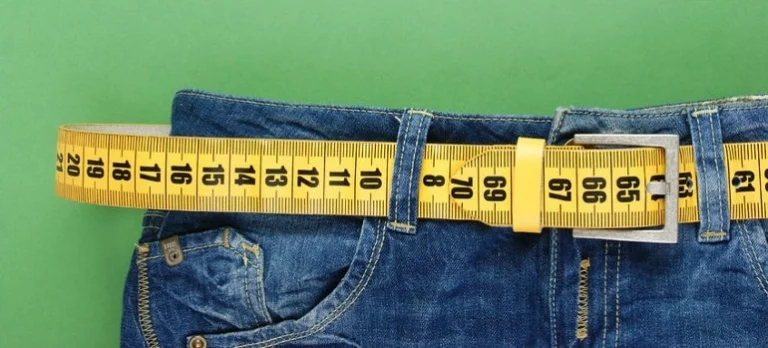Eating Enough on Phentermine
The whole reason we take phentermine is to control our appetite, give us energy, and ultimately help us lose weight.
But sometimes – especially when you’re new to phentermine – the appetite suppressing effect of phentermine is extremely strong.
As a result, one of the comments we see a lot on social media is that people forget to eat. In addition to slowing your weight loss, regularly skipping meals or eating far too little can also make you feel weak, fuzzy, or overly hungry for later meals.
So, here we have some great information on why it’s important to eat enough calories (even when you’re trying to lose weight!) and ideas for helping you stay on track (even when you don’t have much of an appetite).
What is a Calorie?
Within weight loss communities, there’s a lot of discussion about eating and burning calories, so let’s start with a little recap of what they’re actually measuring.
A calorie (or kilocalorie, or cal, or kcal) is the amount of energy it takes to increase the temperature of one kilogram of water by one degree Celsius.
Now, unless you’re in chemistry class, this definition probably doesn’t matter very much to you. What does matter is that calories are the unit we use to quantify how much energy is contained within the food and drinks we consume every day.
The more calories something has, the more energy it contains.
The more energy we give our bodies, the more fuel we have to carry out daily functions of thinking, breathing, living, working, and everything else.
For this reason, the general recommendation is to consume at least 1200 calories per day to preserve daily functions and more if you need them.
This minimum should not be viewed as an ideal goal but instead as an absolute lower limit unless otherwise directed by a doctor.
The Importance of Eating Enough
While adjusting the balance between ‘calories in’ and ‘calories out’ is critical to successful weight loss on phentermine, if you throw this balance too far off center, it’s not healthy.
Your body needs the energy to carry out its basic functions, and even more if you’re adding in physical activity, so it’s important to give it the fuel it needs.
During your weight loss journey with phentermine, this is especially important. Your body is made to use food for energy, so when you don’t give it enough fuel, it doesn’t work correctly – just like a car that’s low on gas.
First of all, it’s hard to meet your vitamin and protein needs when you’re eating limited calories. Additionally, if you eat too little it sends your body into survival mode.
In its panic, your body breaks down muscle for energy and ignores the fat. This breakdown may result in small losses on the scale in the short term, but it’s not ideal because our long-term goal is to lose fat and build muscle given that muscle burns more calories than fat while resting.
Also, you are more likely to maintain weight loss (and fat loss) achieved through moderate lifestyle changes versus extreme diet or exercise.
Finally, your brain needs food/glucose for fuel too. For that reason, not eating enough can make you feel mentally foggy. To keep your body and mind in top condition, it’s important to ensure you’re regularly eating.
So… How Much Should I Eat?
Caloric requirements vary a lot depending on age, gender, and physical activity, as well as between individuals.
In general, men should eat more than women, active people should eat more than sedentary people, middle-aged people should eat more than children and elderly people, and those with a higher starting weight should eat more than those with a lower starting weight.
A qualified health professional can help you determine how many calories you need per day based on all of these factors, plus other health conditions if you have any.
Some new apps and trackers can also provide somewhat accurate estimates of these needs.
However, high variation between individuals highlights the importance of always consulting with your doctor about calorie goals before and throughout your phentermine journey.
If you’re interested in reading more about calorie requirements on phentermine check out our great blog post on this topic!
Sample Meal Plans from Real Phentermine Users
We’ve written a lot about meal planning, healthy snacks, and forming good eating habits on phentermine to help you reach these goals, but sometimes it’s easier to see what other people are actually doing.
Below are some examples of what other real phentermine users have eaten on a sample day during their phentermine journey.
Daily meals of Trenda, who lost 40 pounds on phentermine!

Daily meals of Chrissy, who lost 51 pounds on phentermine!

Tips and Tricks to Eat the Right Amount
If you’re like many of our Facebook group members, when phentermine suppresses your appetite, it’s easy to forget about meals.
Although this may not seem like a big deal at the moment, remember that the ultimate goal is a lifestyle change, and to maintain this lifestyle over the long term, we need to eat.
Below are some tips to help you establish a healthy eating plan, stick to a schedule, and remember to eat
Block off specific eating times in your schedule: If your lack of appetite is causing you to regularly forget meals, try scheduling your meals just like you schedule meetings or coffee with friends.
Blocking off specific 30-60 minute mealtimes three times daily, plus a couple of 15-minute snack breaks, will help you remember your meals and establish a routine.
Even if you’re not hungry, try to eat a small snack at the specified times so that you don’t grow overly hungry before the next meal.
This snacking proves especially important if you have a demanding or hectic schedule that makes it easy to accidentally miss meals when you’re not driven by hunger.
Some people even like to set the phone or watch alarms for mealtimes so that they don’t forget during their busy days.
Prepare meals ahead of time: Plan what you want to eat at the beginning of the week, buy the ingredients, and prepare what you can.
With more perishable foods, aim to prepare all of your meals for the day the night before or early in the morning. This advanced planning will help you eat more balanced meals, establish healthy habits, and control portions.
If everything is all planned out and prepared beforehand, eating becomes more like a checklist and less of spontaneous activity.
While this may seem like a negative, it’s actually very beneficial when you are trying to learn to eat healthier and build good habits.
Consider eating more frequently: Some experts recommend eating smaller meals 4-6 times per day instead of eating three large meals.
Frequent snacks help maintain more consistent blood sugar levels and stave off over-eating due to extreme hunger.
Depending on what you eat for these smaller meals (and how caloric those choices are), you can use this technique for either eating more or eating less.
If you are struggling to consume a minimum of 1200 calories per day, try adding a snack of half a turkey sandwich, a small protein shake, or plain yogurt with berries between regular meals to boost your calories.
These same snacks can also be used to help you consume fewer calories if you complement them with noticeably smaller mealtime portions.
The combination of between-meal snacking and effective portion control works for weight loss because it keeps hunger under control and helps avoid inadvertent over-eating.
It’s also very beneficial for people with diabetes or other conditions that benefit from good blood sugar control.
Focus on nutritionally dense calories: Eating enough is important, but not all calories are created equal.
Some people think that it’s okay to eat junk food as long as they’re staying within their specified calorie range. While the occasional splurge is fine, most of your calories should come from nutritious, healthy food.
Focus on foods that provide nutritional benefits through moderate levels of protein and carbohydrates and lower fat levels.
Choose fruits, vegetables, whole grains, and low-fat or non-fat dairy when possible. Limit sugar, fat (especially bad fats), and nutritionally-empty calories.
By focusing your efforts on more nutritional food, you are more likely to achieve a balanced diet and meet your nutrient needs throughout the phentermine journey and beyond.
Make different, exciting meals: Finally, make your meals fun! At some point, healthy eating somehow got associated with boring eating, but it doesn’t have to be that way.
Experiment with new recipes, talk with others about their healthy meal ideas and vary the spices you use in your favorite recipes.
You are much more likely to eat meals that you’re excited about. While some people prefer to eat the same thing daily, most of us need a little variation.
Check out some of our old posts on healthy breakfast, snack, and dinner ideas to get inspired for some new, exciting meals this week.
Finally, if you regularly struggle to reach 1200 calories per day and/or are still experiencing extreme appetite suppression after the first few days on phentermine, you may want to speak with your doctor about possibly lowering your dose.
Do you struggle to eat enough phentermine? Do you have any tips to help other phentermine users? We would love to hear about it in the comments section below!
Did you like the article?
Subscribe to our weekly newsletter and get our best weight loss tips straight to your inbox!









Hi Sally,
I’ve had quite a bit of success with phentermine but lately my appetite has been suppressed to the point to where most meals gross me out after 4-5 bites. So I do this like 5-6 times a day, luckily I work from home, but this is just tedious. I’ve been having really great success and need to drop this weight due to health issues. I’m concerned though once I’m off the phentermine I will regain my hunger and put the weight right back on. Have there been studies on the after effects of this drug?
Hi Maija,
Here’s everything you need to know about life after phentermine: https://www.phentermine.com/phentermine-withdrawal/life-after-phentermine/ We are glad to hear that you are making the effort to eat enough while on phentermine. Focus on whole foods such as fruits, vegetables, lean proteins, and whole grains.
Also, if you’re in search of like-minded people who have also taken this medication and are now navigating the triumphs and challenges of life after phentermine, join our supportive Facebook group today: https://www.facebook.com/groups/1069871763087734
Sally, Phentermine.com
can you do intermittent fasting our should you eat 3 meals a day with snacks
Hi Kathy,
Many users have found success with intermittent fasting while on phentermine.
To keep hunger at bay, you must focus on filling up foods high in protein and fiber, as this winning combination will leave you full for hours. So, be sure to eat lean meat, fish, eggs, and other healthy protein sources, as well as plenty of fiber-packed foods, such as whole grains, legumes, fruit, and vegetables.
Just like your metabolism, your hunger isn’t set in stone, and one of the best ways to reprogram your hunger levels is to concentrate on relieving stress in your life and ensure that you get at least seven hours of sleep each night.
Stress and a lack of sleep both heighten appetite and cause hunger signals to become confused.
Hope that helps! You are also more than welcome to join our official Facebook support group so you can connect with other phentermine users today: https://www.facebook.com/groups/1069871763087734
Best regards,
Sarah, Phentermine.com
I have been taking this medicine for a week now & I have no appetite or craving for anything but water! I am having to make myself it a cliff bar for lunch and a small dinner. Is this ok ?? I’m worried that I’m not eating enough but how do you know…..?!?
Hi Alicia,
It is very important that you eat enough to actually be able to lose weight. Not providing your body with enough food will cause your body to conserve any food you do provide it as fat. It is generally thought that the minimum amount of calories you should consume each day is 1200, but the exact amount you should be eating depends on your sex, age, height and starting weight. Here we explain more: https://www.phentermine.com/blog/what-to-eat-while-taking-phentermine/
Hope that helps!
Sarah, Phentermine.com